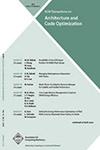MicroProf:微服务应用程序中不必要数据传输的代码级归属
IF 1.8
3区 计算机科学
Q4 COMPUTER SCIENCE, HARDWARE & ARCHITECTURE
引用次数: 0
摘要
微服务架构风格因其故障隔离能力、易于扩展应用程序和开发人员的敏捷性而受到欢迎。然而,以微服务设计风格编写应用程序有其挑战。由于松耦合的性质,服务通过标准的通信api与其他服务通信。由于通信协议和数据转换,这会在应用程序中产生很大的开销。微服务应用程序逻辑上低效的服务通信会进一步压垮应用程序。我们进行了灰色文献回顾,显示不必要的数据传输是该行业的真正挑战。据我们所知,目前还没有有效的工具可以准确地识别导致显著性能开销的不必要的微服务通信的根源,并为优化提供指导。为了弥合知识差距,我们提出了MicroProf,这是一个动态程序分析工具,用于检测基于java的微服务应用程序中不必要的数据传输。在实现层面,MicroProf提出了一些新技术,比如远程对象采样和硬件调试寄存器来监控远程对象的使用。MicroProf在应用程序源代码级别报告不必要的数据传输。此外,MicroProf还指出了通信API优化的机会。MicroProf在四个知名应用程序上进行了评估,其中包括两个实际应用程序和两个基准测试,确定了五个低效的远程调用。在MicroProf的指导下,API优化使REST API响应中的字段数量减少了87.5%。实证评价进一步表明,优化后的服务速度提升高达4.59倍。本文章由计算机程序翻译,如有差异,请以英文原文为准。
MicroProf: Code-level Attribution of Unnecessary Data Transfer in Microservice Applications
The microservice architecture style has gained popularity due to its ability to fault isolation, ease of scaling applications, and developer’s agility. However, writing applications in the microservice design style has its challenges. Due to the loosely coupled nature, services communicate with others through standard communication APIs. This incurs significant overhead in the application due to communication protocol and data transformation. An inefficient service communication at the microservice application logic can further overwhelm the application. We perform a grey literature review showing that unnecessary data transfer is a real challenge in the industry. To the best of our knowledge, no effective tool is currently available to accurately identify the origins of unnecessary microservice communications that lead to significant performance overhead and provide guidance for optimization. To bridge the knowledge gap, we propose MicroProf, a dynamic program analysis tool to detect unnecessary data transfer in Java-based microservice applications. At the implementation level, MicroProf proposes novel techniques such as remote object sampling and hardware debug registers to monitor remote object usage. MicroProf reports the unnecessary data transfer at the application source code level. Furthermore, MicroProf pinpoints the opportunities for communication API optimization. MicroProf is evaluated on four well-known applications involving two real-world applications and two benchmarks, identifying five inefficient remote invocations. Guided by MicroProf, API optimization achieves an 87.5% reduction in the number of fields within REST API responses. The empirical evaluation further reveals that the optimized services experience a speedup of up to 4.59 ×.
求助全文
通过发布文献求助,成功后即可免费获取论文全文。
去求助
来源期刊

ACM Transactions on Architecture and Code Optimization
工程技术-计算机:理论方法
CiteScore
3.60
自引率
6.20%
发文量
78
审稿时长
6-12 weeks
期刊介绍:
ACM Transactions on Architecture and Code Optimization (TACO) focuses on hardware, software, and system research spanning the fields of computer architecture and code optimization. Articles that appear in TACO will either present new techniques and concepts or report on experiences and experiments with actual systems. Insights useful to architects, hardware or software developers, designers, builders, and users will be emphasized.
 求助内容:
求助内容: 应助结果提醒方式:
应助结果提醒方式:


